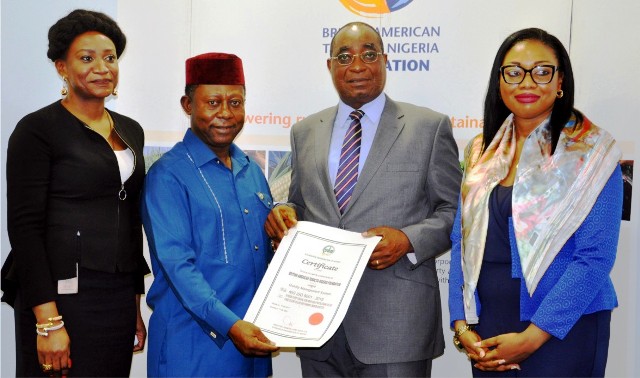Business
Osinbajo Hails ECOWAS Bank For Infrastructure Funding

Vice President Yemi Osinbajo last Tuesday, praised the ECOWAS Bank for Investment and Development for being proactive in infrastructure funding and development in the sub-region.
He stated this while declaring open the 15th Ordinary Session of the Board of Governors’ Meeting of the ECOWAS Bank for Investment and Development (EBID), in Abuja
According to him, a strong, vibrant and creative EBID is a strong pillar in development of the sub-region.
“So, without question, the challenges today call for greater creativity and foresight in supporting and making investments in our member countries.
“So one of the crucial issues today which will decisively impact the future is how the bank can make a difference in the lives of our young people.
“And there are opportunities for strategic investments in relevant education; especially in the under-served disciplines such as science, education, engineering and maths.
“Perhaps also the rising scale of foreign investment influence in business start-ups by our young people should be taken by our local finance institutions such as the EBID as a challenge to be just as relevant and invested in the dreams and visions of our local talents.
“Here in Nigeria we like to see you become more active in supporting our investments and infrastructure ambitions.’’
According to Osinbajo, the federal government is working hard to attract greater local and foreign investments and has put in place the needed reforms required to create an enabling environment for these investments.
He stated that with the country’s robust economic plan and the ongoing business environment reform, it was confident that investing in Nigeria would continue to be a smart business decision.
The Vice President stated that there was no doubt that the success of the Nigerian economy with its population in the region and as the largest GDP in the continent would positively influence the whole sub-region.
Osinbajo also underscored the importance of agriculture in the economic resurgence of West Africa and stated that it was important to fund the sector focusing on improved inputs, cutting-edge extension services and agro processing.
He remarked that an important initiative was the region’s Agriculture Productivity Programme aimed at achieving a six per cent agriculture growth and food production.
Transport
Automated Points Concession : FAAN Workers Gave 72hrs To Revise Decisions In PH

Transport
FAAN Announces Pick-Up Points for Go-Cashless Cards

Business
Fidelity Bank To Empower Women With Sustainable Entrepreneurship Skills, HAP2.0
-
Politics3 days ago
2027: NIGERIANS FAULT INEC ON DIGITAL MEMBERSHIP REGISTER DIRECTIVE
-

 Environment3 days ago
Environment3 days agoLAWMA Director Says Sweeping Reforms Have Improved Waste Collection
-
Politics3 days ago
LP Crisis: Ex-NWC Member Dumps Dumps Abure Faction
-

 Politics3 days ago
Politics3 days agoUmahi Dismisses Allegations On Social Media, Insists On Projects Delivery
-

 Sports3 days ago
Sports3 days agoAbia Not Sure To Secure continental Ticket
-
Sports3 days ago
La Liga: Yamal Records First Career Hat-trick
-
Politics3 days ago
NATASHA ELECTRIC VEHICLES INITIATIVE IN KOGI CENTRAL
-

 Sports3 days ago
Sports3 days agoCity Survive Leeds’ Challenge At Elland Road

